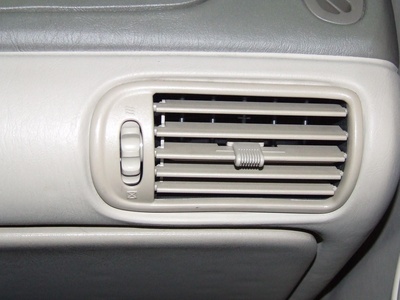
A vehicle's cabin filter is part of the air-conditioning system, leading to it sometimes being referred to as an air-conditioning filter. These filters are often made of paper or cotton material. They remove pollutants from the air before they enters a vehicle's cabin. A clogged filter can negatively affect the air-conditioning system's efficiency.
A clogged cabin filter can reduce the volume of air that can pass through. This means air passing through the air-conditioning system slows down, thus reducing the flow of air into the cabin of the car. Vehicle owners may have to turn up the fan settings on their air conditioner to compensate for the reduced airflow, putting a strain on the air-conditioning system as it tries to blow more air into the cabin.
A vehicle's engine provides power for the air-conditioning system's components. When the cabin filter is clogged, the system has to work harder and requires more power from the engine to do so. This reduces power to other components such as the drive train and alternator. As more power is diverted into meeting the needs of the air-conditioning system, overall horsepower and performance can suffer.
An overworked air-conditioning system with reduced airflow is less able to keep the a consistent cabin air temperature. The air temperature increase caused by a clogged cabin filter may be gradual or significant, depending on how the filter is clogged, as well as other factors such as the outside temperature and amount of sunlight heating the air as it passes through the car's windows. When the air temperature starts to rise, the air conditioner simply can't produce enough cool air to reduce the temperature.
More dust, pollen and other airborne pollutants make their way into a vehicle's cabin when the air filter is clogged. This is a result of the air conditioning system pulling air through and around the filter.